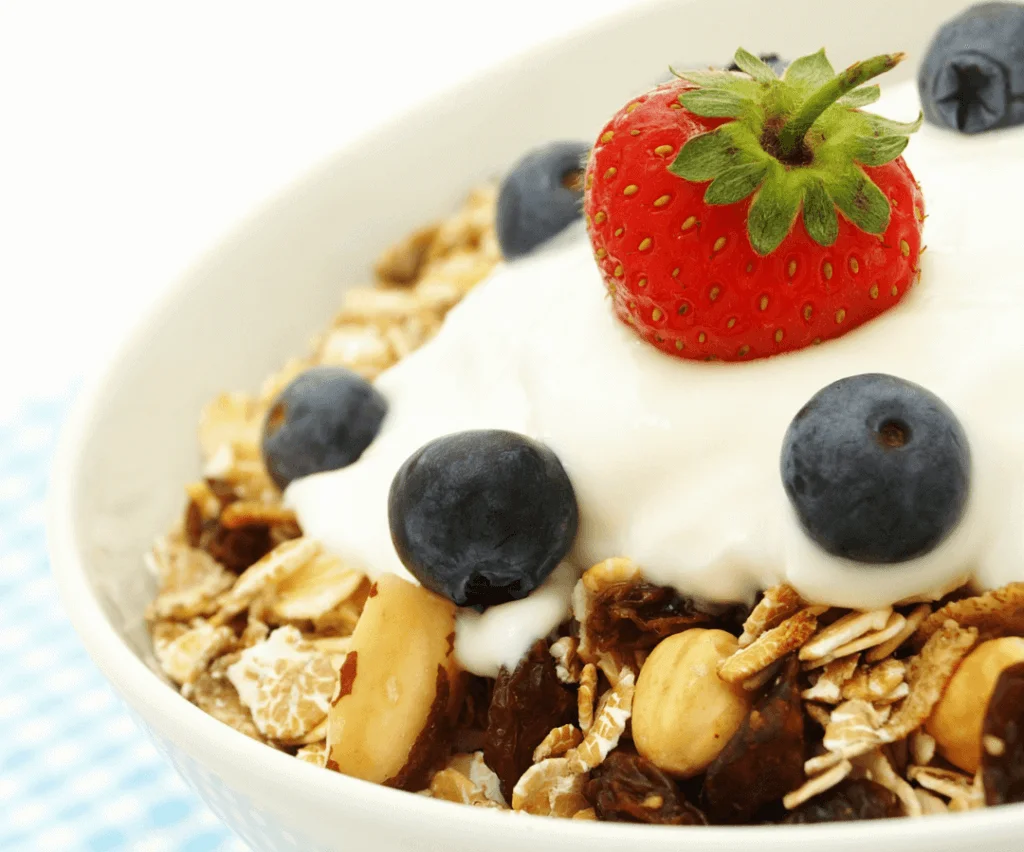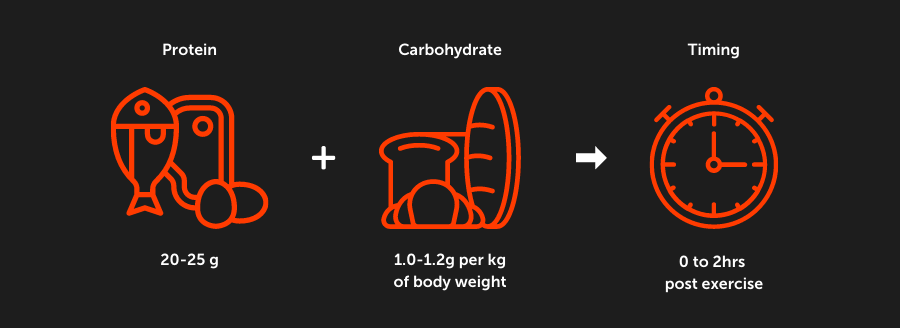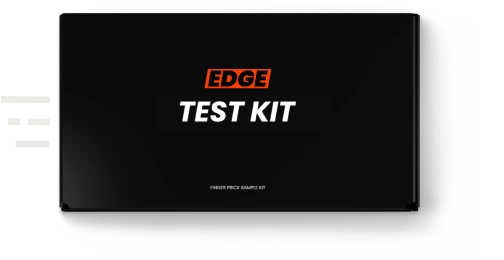
Nutrition
The Best Foods To Recover Fast
Optimal performance in sport and exercise requires a balance between adequate training and subsequent recovery (1). Adequate recovery gives you the ability to increase your level of training, enhance your fitness and technique which then contributes to improvements in performance (2). There are a variety of techniques and interventions in order to aid recovery in sport these include stretching, hydrotherapy, massages and active recovery (3).
1 min read
Published on
November 29, 2021
Written by
EDGE
Share this article
However, the most fundamental is replenishing nutrient intake. If you don’t prioritise recovery nutrition it is likely to result in increased fatigue, decreased level of performance, suboptimal muscle gains and enhanced muscle soreness.
WHY DO OUR MUSCLES GET SORE AFTER EXERCISE?
When you exercise your muscles contract in various ways which results in soreness. The muscles also use up glycogen stores for fuel. When muscles become deprived of glycogen the protein gets broken down and damaged causing the muscles to become inflamed (4). Therefore, we need to replenish the body with food prioritising protein and carbohydrates, along with adequately hydrating (5). This encourages the muscles to repair quickly, allowing you to go again the next day.

Protein
Protein plays a very important role in the muscle recovery process by building and repairing them alongside promoting muscle growth. Eating protein promotes muscle protein synthesis aiding the recovery of the muscles (5). More recently investigation into the timing of when to eat protein has had lots of attention for optimising recovery (6). Research states that ingesting high-quality protein sources from immediately to 2 hours after exercise increases muscle protein synthesis (7). And the optimal dose should be 20-25 g (8).
Carbohydrate
Glycogen is the storage of carbohydrates that gets used by your body as fuel during exercise.
The intake of carbohydrate enables the replenishment of muscle glycogen (9). Replenishing the glycogen stores with carbohydrate will support the repair of muscle tissue and speed up the recovery process (10). The rate of muscle glycogen resynthesis is generally greatest during the first hour after exercise (11). Therefore, it’s important that you eat something that is high in carbohydrates after exercise to top up glycogen stores. Optimal carbohydrate intake after exercise is 1.0-1.2g per kg of body weight (11).
It is common to not feel like eating straight away especially after a long training session. Renee McGregor highlights that the main reason for this is that during exercise our blood is diverted away from your digestive system to the working muscles.
Renee recommends having a milk-based drink for example, chocolate milk or a milk-based smoothie. This will ensure you are getting adequate carbohydrate and protein in the first 0-2 hours after exercise and then you can have a snack after this, followed by a meal in the hours after.
Other Good Foods For Recovery
Eggs
Versatile and a great source of protein along with containing vitamins A, D, B12, iron, folate and zinc. When you get home from your exercise session you want something that is easy and quick to make. Scrambled eggs on wholegrain toast is a great option here!
Seeds
Flax seeds, hemp seeds and chia seeds are all plant sources of omega-3. This fatty-acid is what your body uses to create hormones that controlling inflammation, muscle contraction and relaxation.
Salmon
Also contains a high amount of omega-3 fatty acids which will help to reduce inflammation in the body. Furthermore, the potassium found in salmon can help to replace some of the electrolytes which have been lost during exercise.
Cottage cheese
Contains a high amount of protein and calcium. This is another great easy post-exercise snack option to have on top of wholegrain toast!
Nuts
Nuts provide a good source of protein which is essential for muscle recovery. Nuts are a source of unsaturated fat containing omega 3 fatty acids. Brazil nuts, almonds, cashews, hazelnuts, pecans and pine nuts all contain magnesium. This mineral helps create new proteins to repair muscles and supports normal muscle function.
Berries
Contain a high number of antioxidants called polyphenols which help to reduce inflammation.
Turmeric
This spice contains anti-inflammatory properties. It can easily be added to your curry at dinner time or sprinkled over roasted vegetables. It even works well when added to your post-exercise smoothie.
Are You A Vegan Athlete?
Unfortunately, it is a bit more difficult for a vegan athlete to access enough protein quickly from one source without consuming excessive amounts. If you do adopt a vegan diet aim to combine different sources of protein.
Overall it has been shown that the body is most effective at replacing carbohydrates alongside promoting muscle repair and growth within the first ~0-2 hours after exercise. However, this will continue for the next ~24-48 hours. Consequently, nutrition needs to continue in the hours well after exercise for optimum recovery. It also needs to take into account the type and duration of the exercise session just completed, along with when you are next going to exercise.
Remember that everyone is different and has a different training and lifestyle schedule along with personal preferences. Aim to consume adequate nutrients and fluid to suit your individual needs to optimise the recovery process and enhance overall performance.
Blood test for
Cyclists
Male & Female Tests
sports doctor review
Results in 2 working days
Flexible subscription
Get 10% off your first order
Want regular tips on how to make the most of your results? Join our newsletter and we'll give you 10% off your order!
